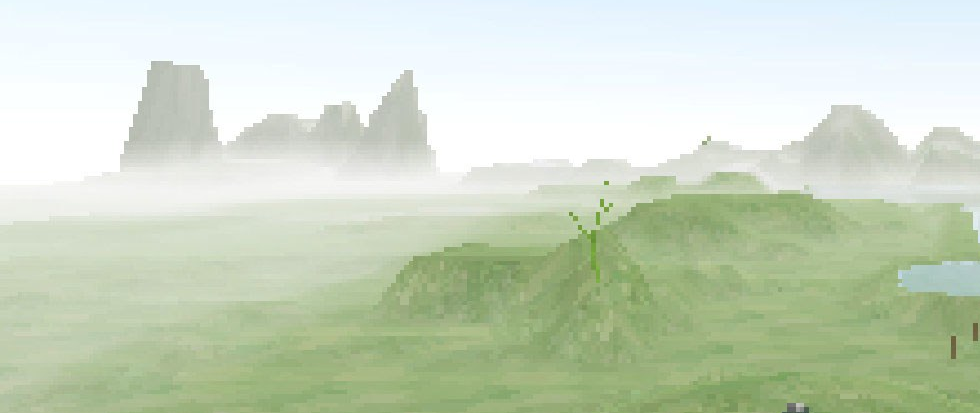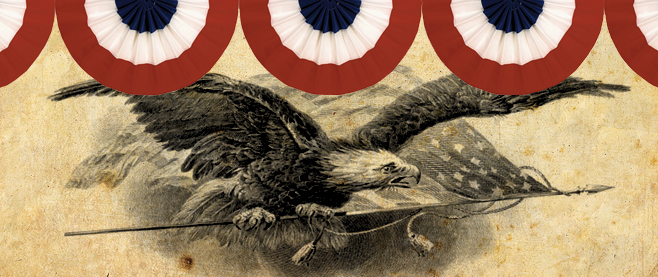
The Game That Made Me Question What It Means to Be Me
The first words in the game All Our Asias comes from the pale, featureless character known as “The Storyteller.” Without a gender, a race, or any other immediate identifiers, the motionless figure before me looked more like a mannequin than a person. The Storyteller’s absence of identity seemed purposeful and its first words, “‘Asia.’ A tiny term for a large place, if you ask me” have been stuck in my head ever since. From the beginning, All Our Asias asks big questions about identity and race. Growing up as an Asian American in the middle of the United States, I had assumed I’d find plenty of commonalities within the relatively short two-hours of the game. Rather happily, I was soon proved wrong once it began exploring what it really means to call yourself a part of something.
All Our Asias is the latest game from Sean Han Tani, who is most prominently known for his collaborations with Joni Kittaka on Anodyne and Even the Ocean. Both were inventive and socially conscious titles; the former tackling the use of escapism in dealing with trauma and the latter a poignant meditation on inequality – both in the systems that surround us and in nature itself. “…It’s nice to take a break and work alone, to figure out your interests and future ideas, before coming back to work together again” Han Tani told me via email. He described his motivations for creating All Our Asias as a combination of wanting to learn more about Unity, which he teaches to his students at the School of the Art Institute of Chicago, and unused themes of ancestral memories and race from a comic that never got off the ground.
A 3D exploration game with surrealistic PlayStation 1 era lo-fi visuals, All Our Asias is immediately striking. I felt like I was one foot in the past and one foot in the present, never fully existing in either one when playing. It’s no doubt thanks to a potent combination of inspirations in games like Shin Megami Tensei Nocturne, Oikospeil, and Kentucky Route Zero that All Our Asias finds its own abstract balance of tones.
The story of All Our Asias revolves around Yuito, a well-off Japanese-American who works at a hedge fund, and his estranged relationship with his dying father. At his father’s bedside, an opportunity presents itself. Via a new experimental technology, Yuito can explore the fading memories of his father in the final moments of his life. After his father falls into a coma, it feels like a second chance to find the answers he’s been searching for. Namely, why did Yuito’s father leave him and his family? What influences in his life made him make such a selfish decision? What could Yuito blame for being robbed of the loving father he so desperately needed? It’s easy enough to empathize with Yuito in his search for answers. He’s angry, a bit too headstrong, and even a bit hypocritical but it’s all for a good reason.
There’s a moment when Yuito decides to go deeper into his father’s memories, disregarding the warnings of the doctor. If he’s within his father’s dreamworld when he passes, Yuito too could die, but that’s a chance he’s too frustrated to weigh appropriately. Bullishly marching forward, he eventually encounters a character known as The General who appears to have known Yuito’s father. He speaks more clearly than any person he’s interacted with in the dreamworld thus far and takes you to Chicago, where Yuito’s father once lived. While there, he forces you to help him protect the local businesses in Chinatown that are getting run out of business by larger and more profitable chains. It’s a moment that stands out in the game where Sean’s writing begins to take a more specific turn.
Within the dreamworld’s surrealistic vision of Chicago exists the technocracy of the Innovators, a collection of super-powered AIs who Yuito must appeal to in order to help the struggling small business owners. The businesses themselves however are viewed as if they exist within a utopian meritocracy by the Innovators, much like what happens in the real world where advocating on the behalf of the marginalized is often seen as unfair to those who have already succeeded. Yuito presents a plan to the Innovators where more profitable businesses could pay higher taxes, which would then return to the community and smaller business through government grants. This plan is rejected however as the Innovators view it as too dangerous to society, for which the punishment is death. A flash of white saves Yuito, however, as he is transported somewhere else yet again, where The General tries to help Yuito explain the purpose of his failure.
“Most people have faced some sort of hardship” Sean told me. “But they may not understand the sorts of forces that lead to those things. It’s likely… that you can graduate college and not have your political ideas or beliefs significantly change up till the day you die. That is kind of frightening! Yuito was meant to be an example of a person like that”.
I too, like Yuito, have been lucky in my life. My parents weren’t particularly wealthy, but I was never forced to confront my own racial identity very often. I found my own friend group to interact with and didn’t let what others had to say about anything bother me much. It wasn’t really until the election of President Trump that my experience really changed. Going to the gas station the day after the election, a stereotypical truck full of college kids hurled slurs in my direction. It hadn’t ever happened so publicly before, but I was numb to this blatant sort of attack – as are countless others. The incident never bothered me much, but it marked a change in my worldview. I couldn’t sit idly by ignorant on the intersectionality of other marginalized peoples any longer. That luxury had been taken away like a scab that had been picked open. The wound was open and festering for all to see.
Yuito’s failure was important to me because it felt like one I had made myself. My willful ignorance in the face of the negative social stratification came from a place of privilege. Although I was able to live life as an Asian American in Middle America without worry, how many others couldn’t because of their race, gender, or ability? Although Yuito’s journey was an analyzation of what it means to be Asian, it also touches on different dimensions of identity. Our place within the systems that affect us help shape our own perception of our identities, after all. If it weren’t for the Innovator’s acceptance of Chinatown’s gentrification, there wouldn’t have been a need for Yuito to propose his policy to them in the first place.
As The General explains to Yuito after his failed interaction with the Innovators, he speaks on Yuito’s empathetic response towards the Korean restaurant owner that he had gotten to sign his petition earlier. “Asia is so big. I don’t think you can claim having something in common. Just because you look similar.” Like Yuito, I too have commonly assumed that a superficial commonality was all I needed to relate with someone. I walked into the game expecting that same sort of experience through this false sense of comradery. Whatever side of a border your ancestor may have been on can radically change your perspective on events. Sometimes, there’s anger there. My Korean mother still resents what the Japanese did during World War II, often telling horror stories of what my grandmother had to endure. I can’t help but feel the same way at times even though I know such thoughts are unproductive.
Defining your identity is a tricky thing. We rarely remain static, constantly engaging with and consuming information. The cells that form our masses of meat fade away over time and so too does our interpretations of ourselves. Our places within such generalizations like race can complicate things even further, making us question what it even means to be a part of something so varied and diverse. In All Our Asias, I found a meditation of intersectionality that helped me come to terms with something I had been struggling with for a long time. Perhaps even for my entire life. While understanding the identities of ourselves and others can often be difficult, the game’s title helps put things into perspective, at least for me. All Our Asias – it’s inclusive. It’s ours, even if we don’t recognize it to be.





